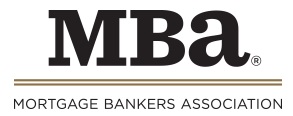WASHINGTON, D.C. – November 9, 2011 – (RealEstateRama) — Mortgage applications increased 10.3 percent from one week earlier, according to data from the Mortgage Bankers Association’s (MBA) Weekly Mortgage Applications Survey for the week ending November 4, 2011.
The Market Composite Index, a measure of mortgage loan application volume, increased 10.3 percent on a seasonally adjusted basis from one week earlier. On an unadjusted basis, the Index increased 9.9 percent compared with the previous week. The Refinance Index increased 12.1 percent from the previous week. The seasonally adjusted Purchase Index increased 4.8 percent from one week earlier to the highest level since August 2011. The unadjusted Purchase Index increased 2.7 percent compared with the previous week and was 2.5 percent lower than the same week one year ago.
The four week moving average for the seasonally adjusted Market Index is down 0.37 percent. The four week moving average is up 0.89 percent for the seasonally adjusted Purchase Index, while this average is down 0.72 percent for the Refinance Index.
“Treasury rates dropped last week, as renewed turmoil in Europe once again led to a flight to quality, and
30-year mortgage rates dropped to their second lowest level of the year,” said Mike Fratantoni, MBA’s Vice President of Research and Economics. “Refinance applications jumped more than 12 percent to their highest level in a month and some lenders experienced even larger increases. As has been the case all year, many refinance applicants are opting to deleverage by choosing 15-year mortgages.”
Following three consecutive weeks of decline, the refinance share of mortgage activity increased to 78.6 percent of total applications from 77.1 percent the previous week. The adjustable-rate mortgage (ARM) share of activity remained unchanged from 5.8 percent of total applications from the previous week.
The average contract interest rate for 30-year fixed-rate mortgages with conforming loan balances
($417,500 or less) decreased to 4.22 percent from 4.31 percent, with points decreasing to 0.41 from
0.49 (including the origination fee) for 80 percent loan-to-value (LTV) ratio loans. The effective rate also decreased from last week.
The average contract interest rate for 30-year fixed-rate mortgages with jumbo loan balances (greater than $417,500) decreased to 4.57 percent from 4.69 percent, with points increasing to 0.47 from 0.45 (including the origination fee) for 80 percent loan-to-value (LTV) ratio loans. The effective rate also decreased from last week.
The average contract interest rate for 30-year fixed-rate mortgages backed by the FHA decreased to
4.02 percent from 4.09 percent, with points decreasing to 0.49 from 0.51 (including the origination fee)
for 80 percent loan-to-value (LTV) ratio loans. The effective rate also decreased from last week.
The average contract interest rate for 15-year fixed-rate mortgages decreased to 3.54 percent from
3.63 percent, with points remaining unchanged from 0.45 (including the origination fee) for 80 percent
LTV loans. The effective rate also decreased from last week.
The average contract interest rate for 5/1 ARMs decreased to 3.01 percent from 3.09 percent, with points decreasing to 0.47 from 0.50 (including the origination fee) for 80 percent loan-to-value (LTV) ratio loans. The effective rate also decreased from last week.
If you would like to purchase a subscription of MBA’s Weekly Applications Survey, please contact MBA Research at (202) 557-2830 or "> or click here.
The survey covers over 75 percent of all U.S. retail residential mortgage applications, and has been conducted weekly since 1990. Respondents include mortgage bankers, commercial banks and thrifts. Base period and value for all indexes is March 16, 1990=100.
###
The Mortgage Bankers Association (MBA) is the national association representing the real estate finance industry, an industry that employs more than 280,000 people in virtually every community in the country. Headquartered in Washington, D.C., the association works to ensure the continued strength of the nation’s residential and commercial real estate markets; to expand homeownership and extend access to affordable housing to all Americans. MBA promotes fair and ethical lending practices and fosters professional excellence among real estate finance employees through a wide range of educational programs and a variety of publications. Its membership of over 2,200 companies includes all elements of real estate finance: mortgage companies, mortgage brokers, commercial banks, thrifts, Wall Street conduits, life insurance companies and others in the mortgage lending field. For additional information, visit MBA’s Web site: www.mortgagebankers.org.














